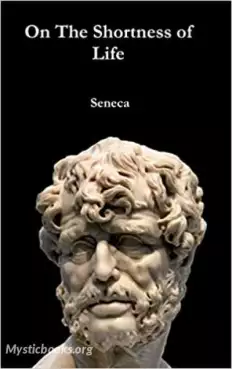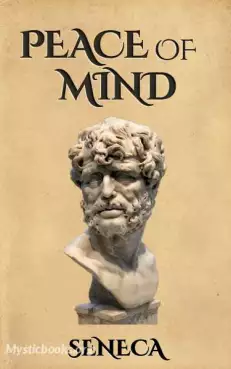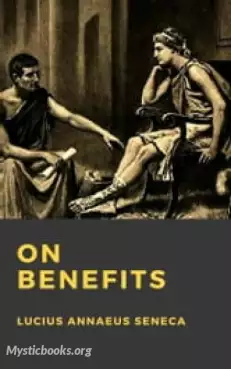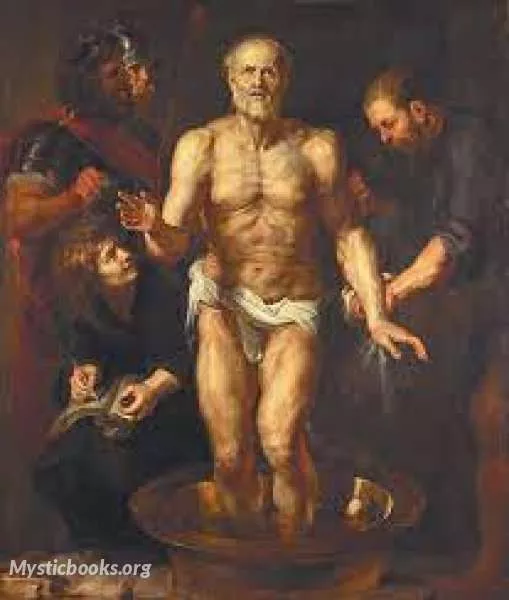Seneca
Lucius Annaeus Seneca the Younger usually known as Seneca, was a Roman Stoic philosopher, statesman, dramatist, and in one work, satirist, from the post-Augustan age of Latin literature.
Seneca was born in Cordoba in Hispania, and raised in Rome, where he was trained in rhetoric and philosophy. His father was Seneca the Elder, his elder brother was Lucius Junius Gallio Annaeanus, and his nephew was the poet Lucan. In AD 41, Seneca was exiled to the island of Corsica under emperor Claudius, but was allowed to return in 49 to become a tutor to Nero. When Nero became emperor in 54, Seneca became his advisor and, together with the praetorian prefect Sextus Afranius Burrus, provided competent government for the first five years of Nero's reign. Seneca's influence over Nero declined with time, and in 65 Seneca was forced to take his own life for alleged complicity in the Pisonian conspiracy to assassinate Nero, in which he was likely to have been innocent. His stoic and calm suicide has become the subject of numerous paintings.
As a writer Seneca is known for his philosophical works, and for his plays, which are all tragedies. His prose works include a dozen essays and one hundred twenty-four letters dealing with moral issues. These writings constitute one of the most important bodies of primary material for ancient Stoicism. As a tragedian, he is best known for plays such as his Medea, Thyestes, and Phaedra. Seneca's influence on later generations is immense—during the Renaissance he was "a sage admired and venerated as an oracle of moral, even of Christian edification; a master of literary style and a model for dramatic art."
Books by Seneca

Of the Shortness of Life
De Brevitate Vitae is a moral essay written by Seneca the Younger, a Roman Stoic philosopher, sometime around the year 49 AD, to his father-in-law Paulinus. The philosopher brings up many Stoic principles on the nature of time, namely that people was...

Of Peace of Mind
How to maintain a tranquil mind amongst social upheaval and turmoil, addressed to Serenus.

Moral Letters, Vol. I
The Epistulae Morales ad Lucilium (Latin for "Moral Letters to Lucilius"), also known as the Moral Epistles and Letters from a Stoic, is a collection of 124 letters that Seneca the Younger wrote at the end of his life, during his retirement, after he...

Moral Letters, Vol. II
This is the second volume of the Letters, Epistles LXVI-XCII. Among the personalities of the early Roman Empire there are few who offer to the readers of to-day such dramatic interest as does Lucius Annaeus Seneca, the author of the Epistles. These l...

On Benefits (De Beneficiis)
De Beneficiis (English: On Benefits) is a first-century work by Seneca the Younger. It forms part of a series of moral essays (or "Dialogues") composed by Seneca. De Beneficiis concerns the award and reception of gifts and favours within society, and...

On the Shortness of Life
Embrace the wisdom of the ages in "On the Shortness of Life" by Lucius Annaeus Seneca. In a world where time seems to slip through our fingers like grains of sand, Seneca's timeless treatise offers a captivating exploration of the art of living fully...
